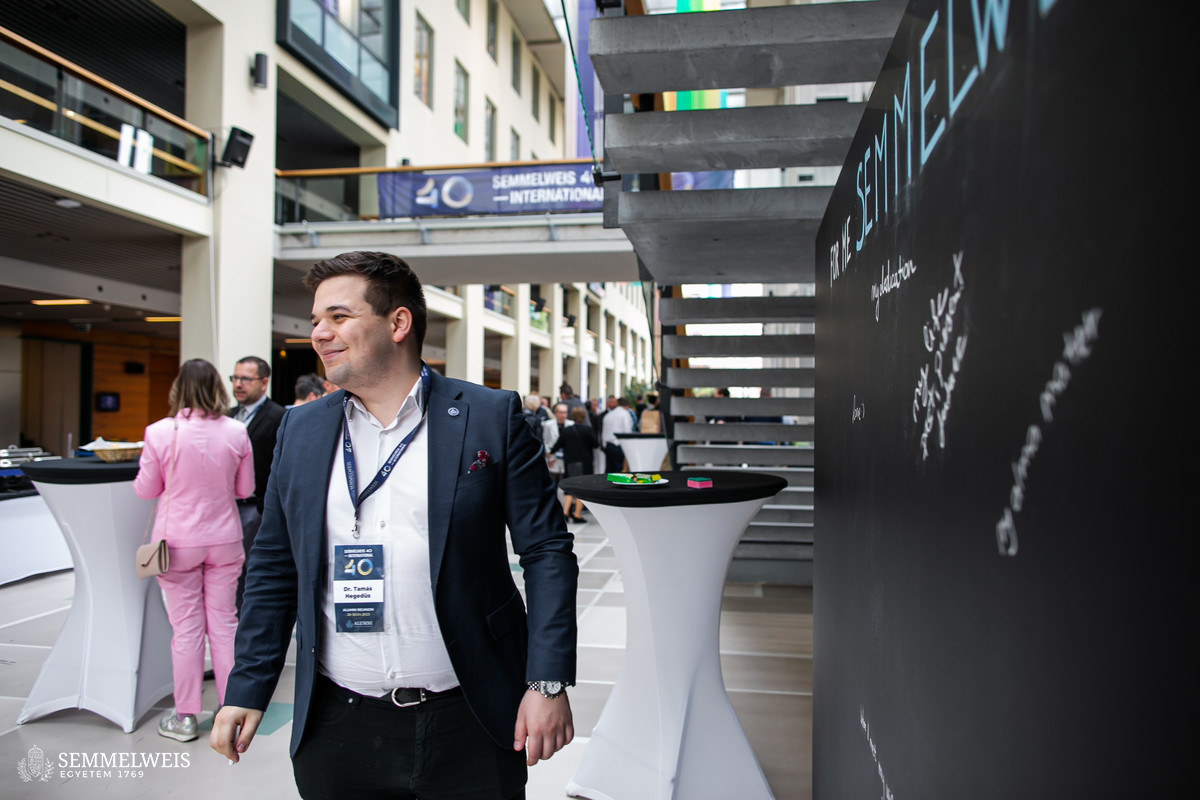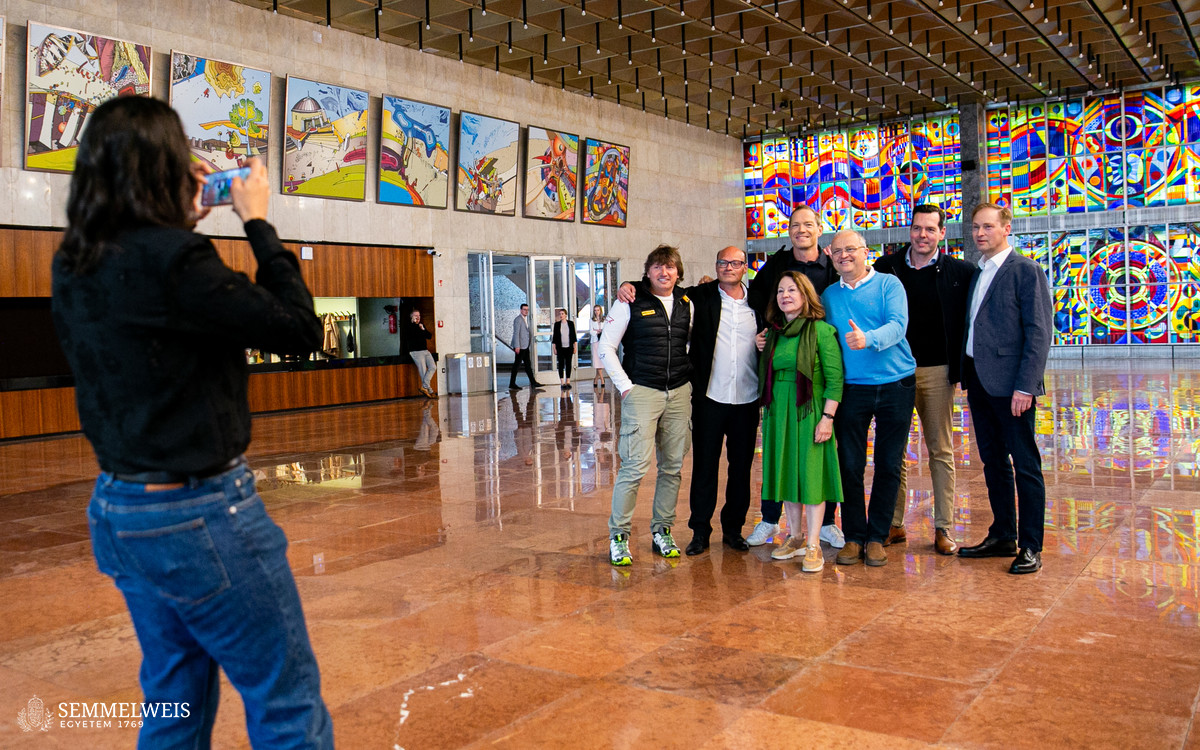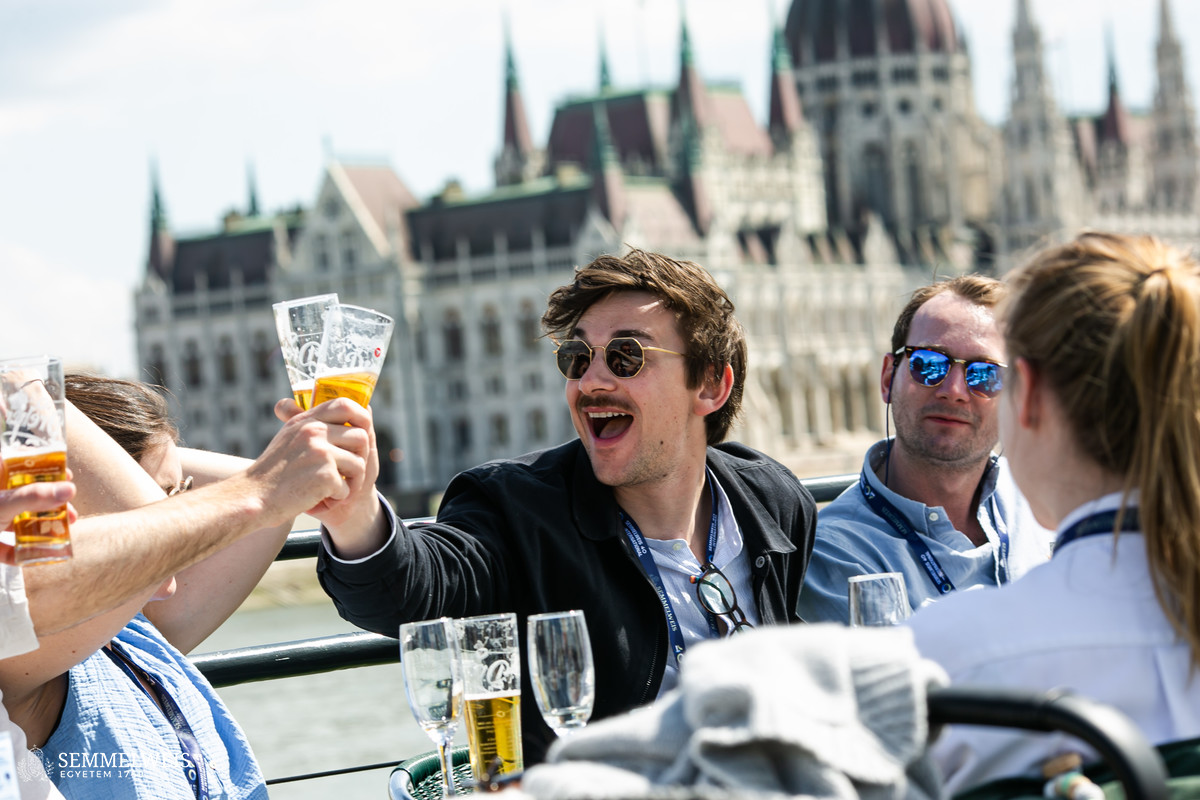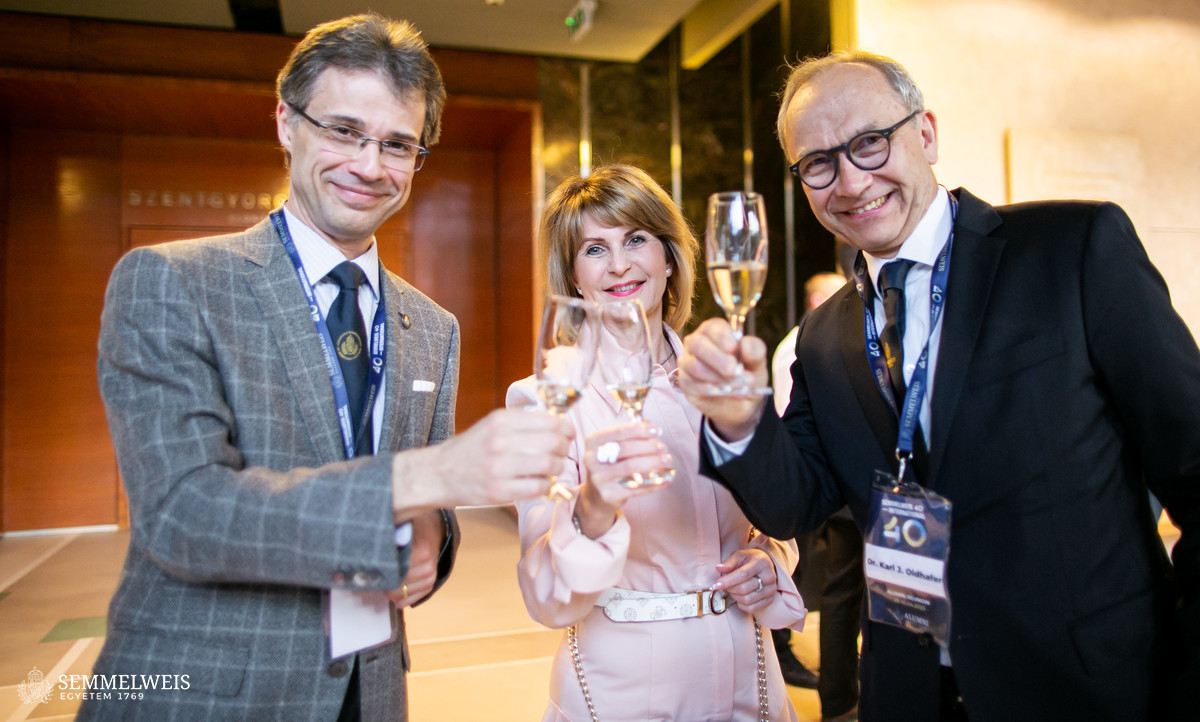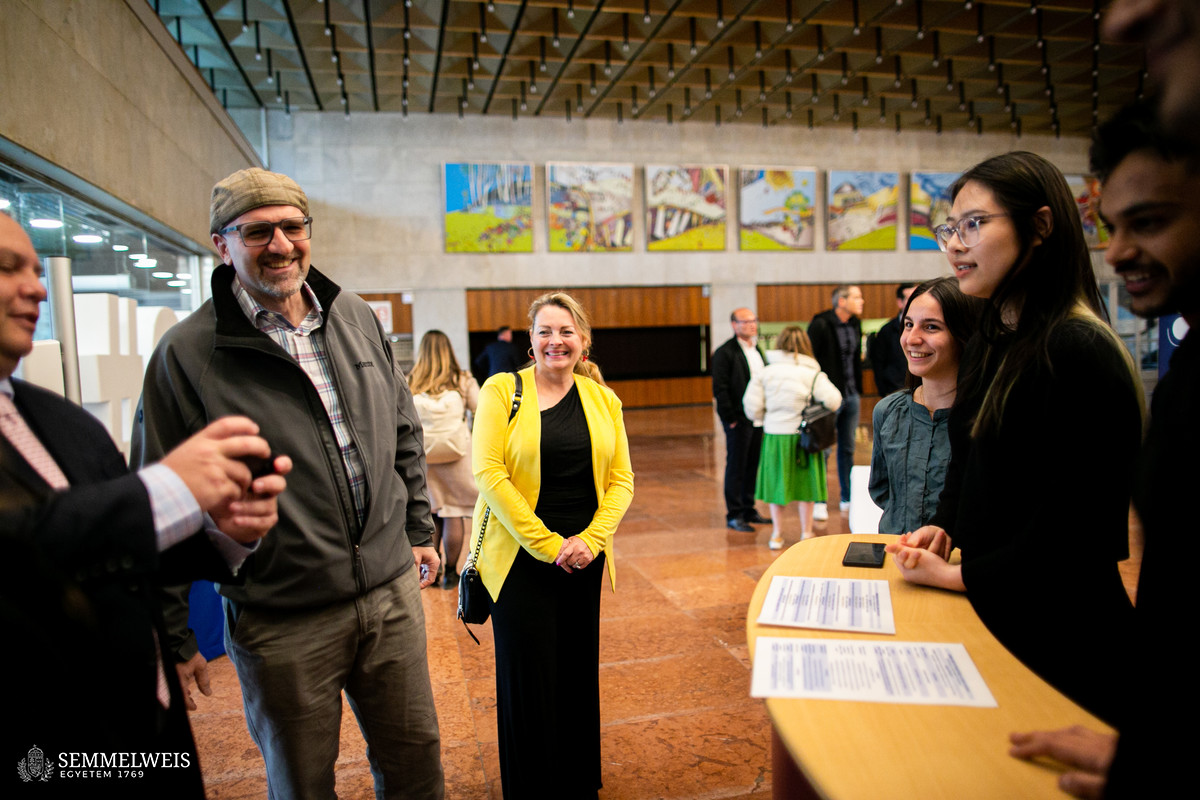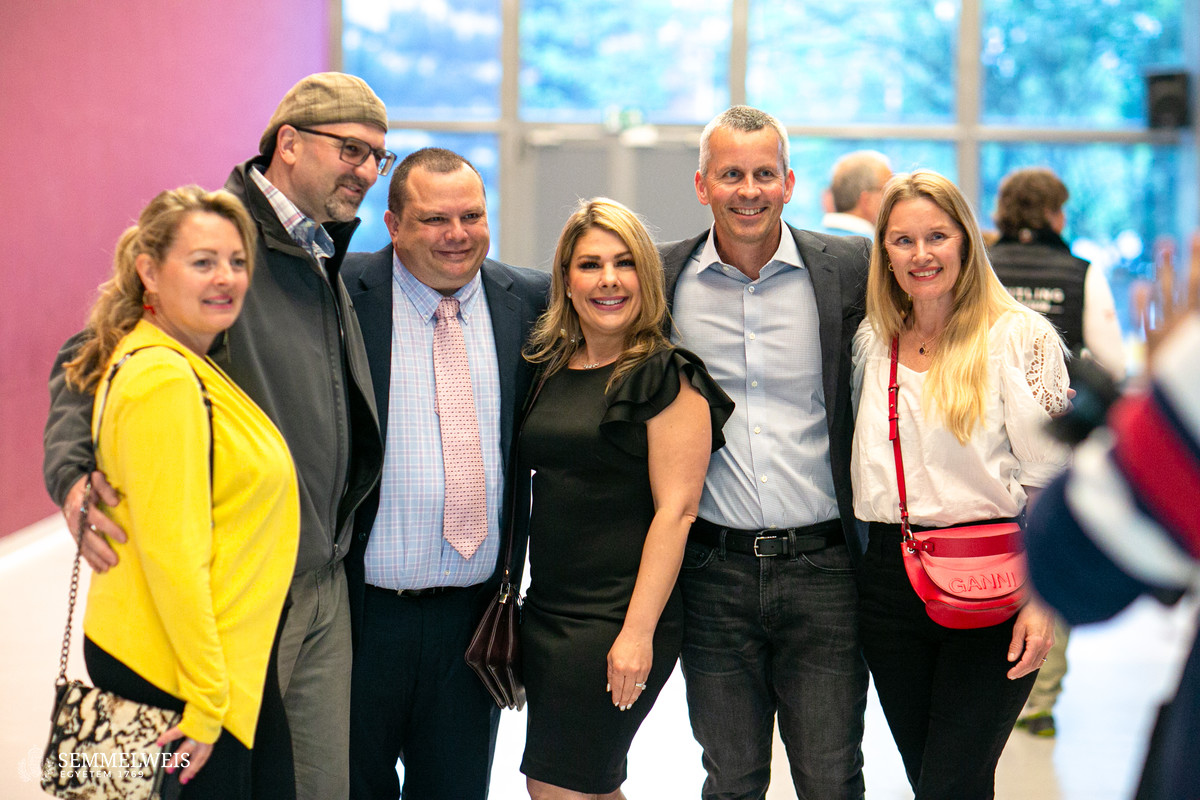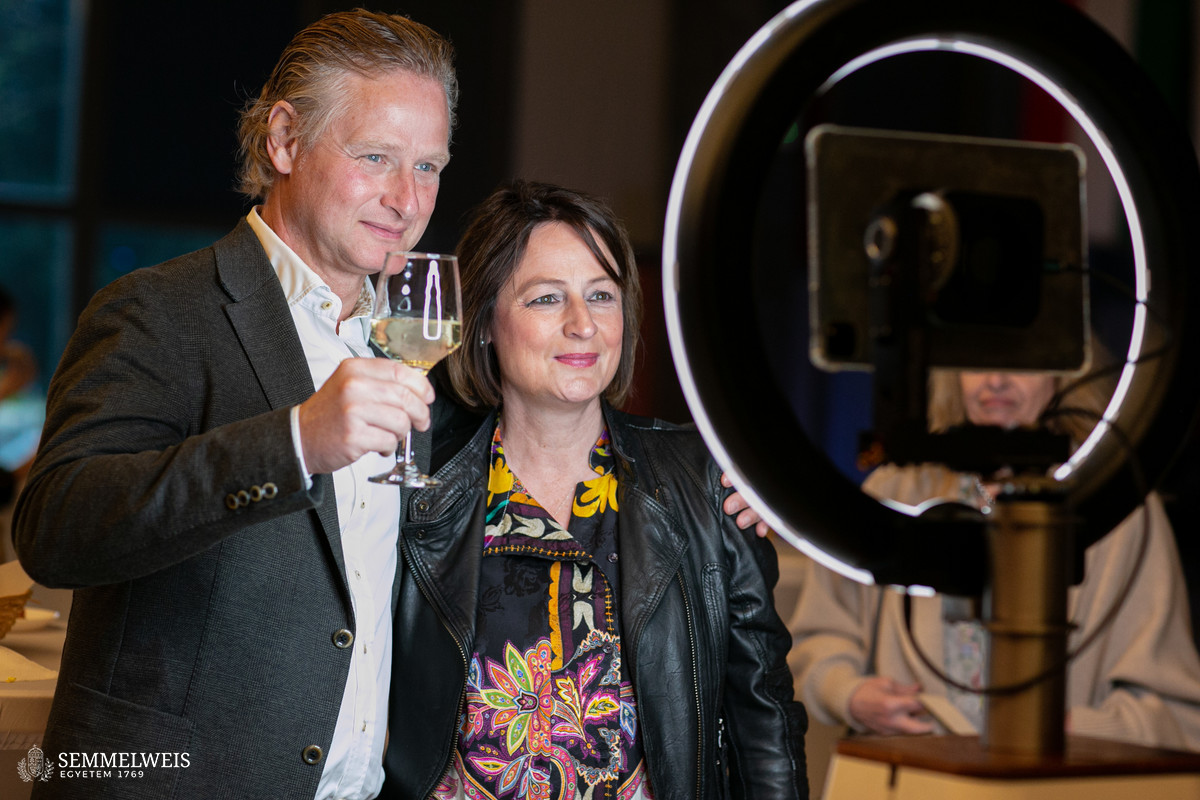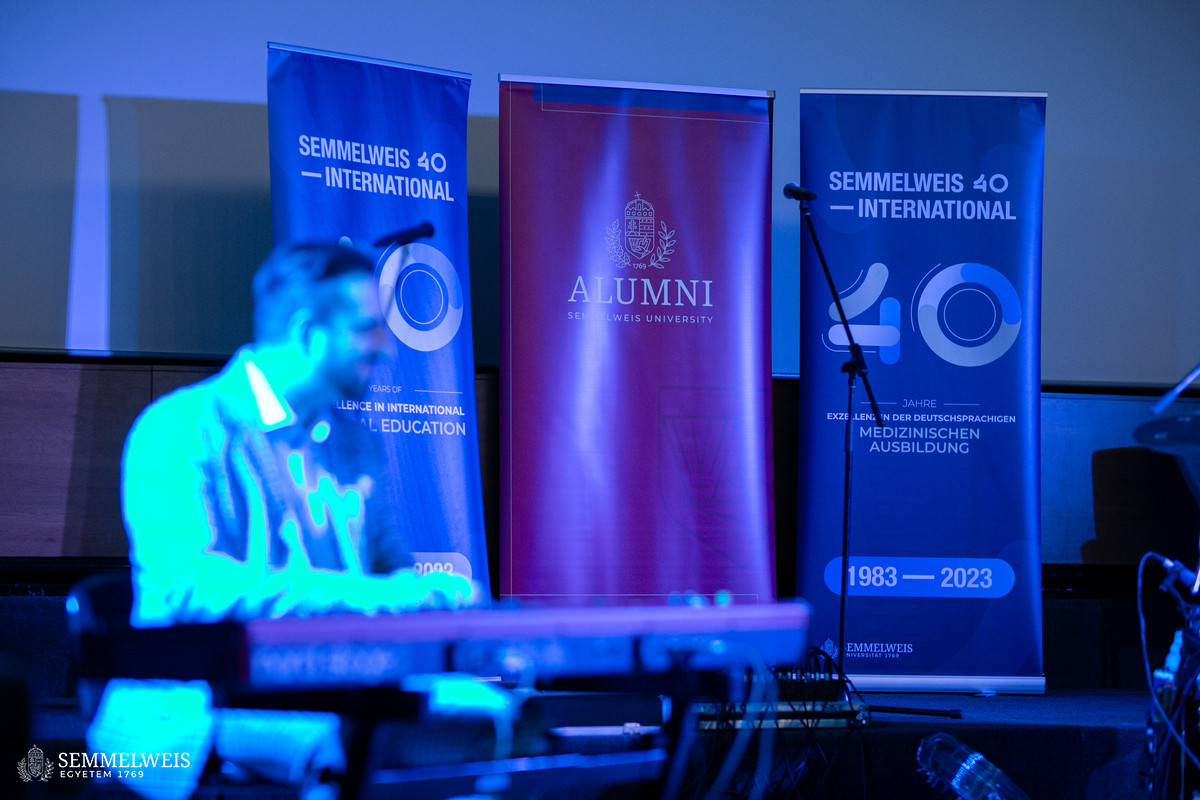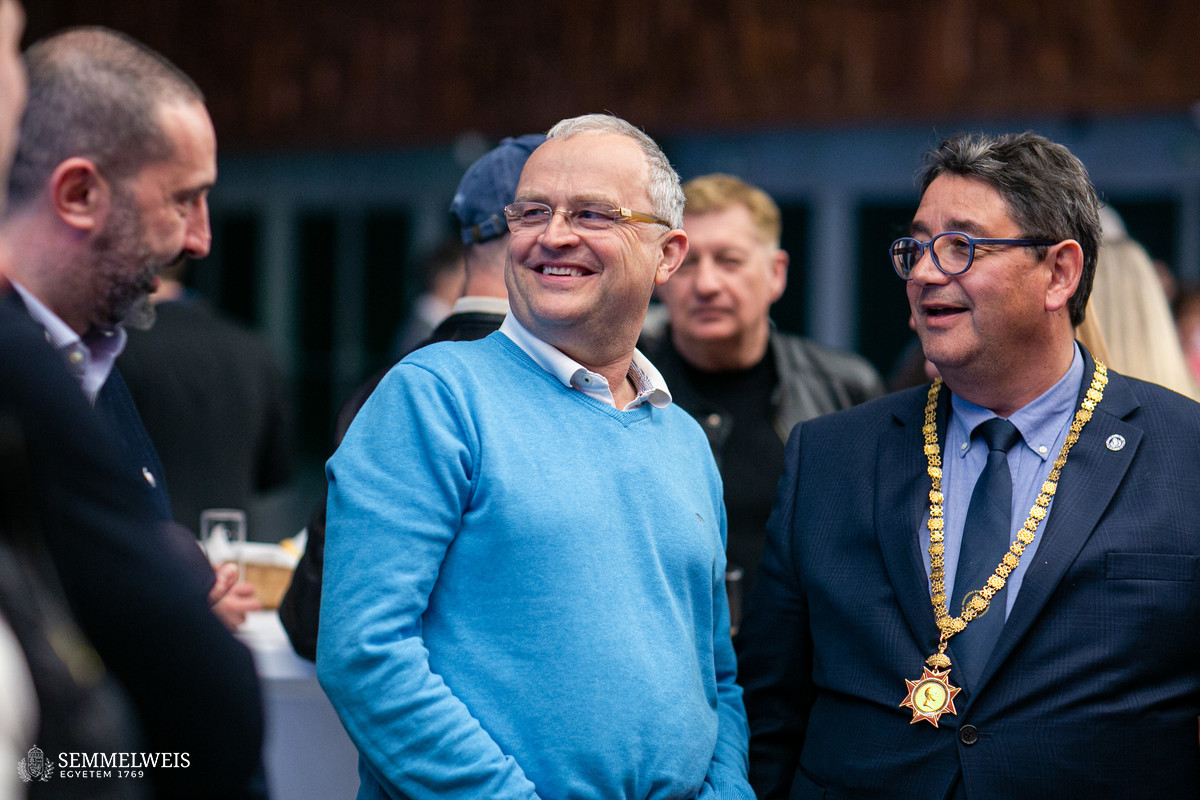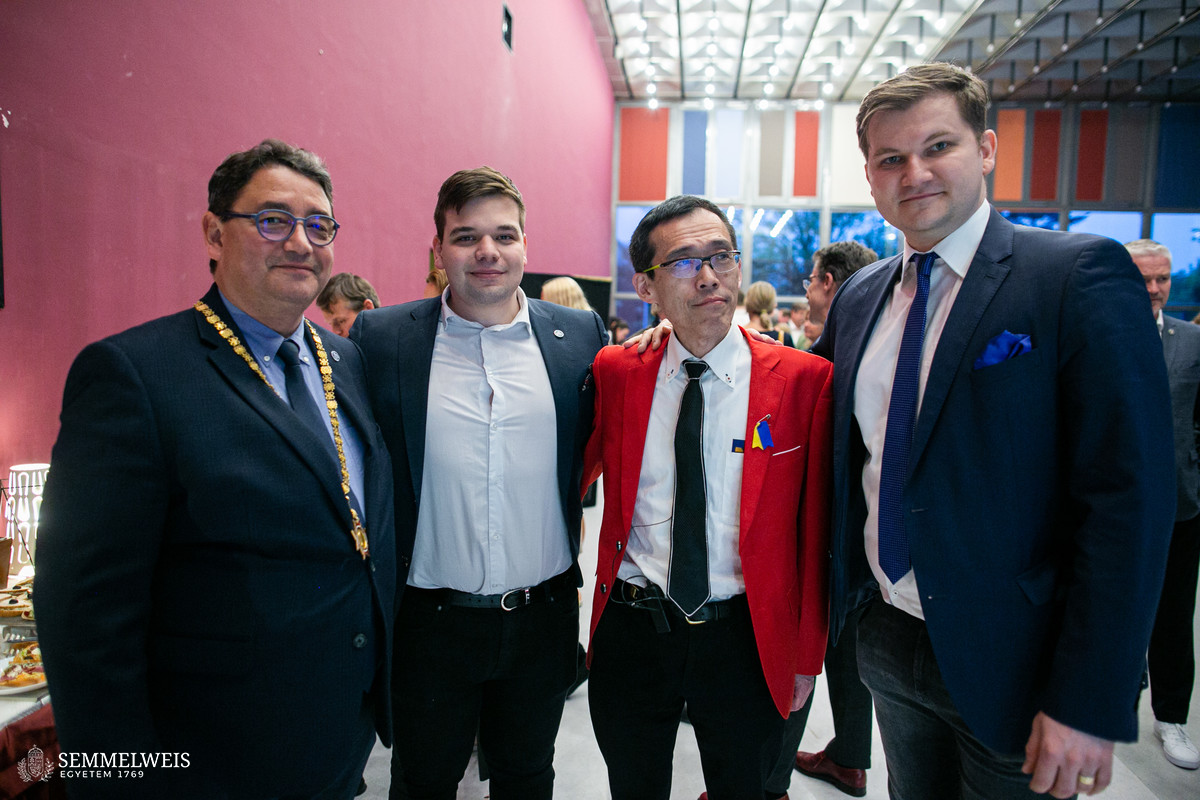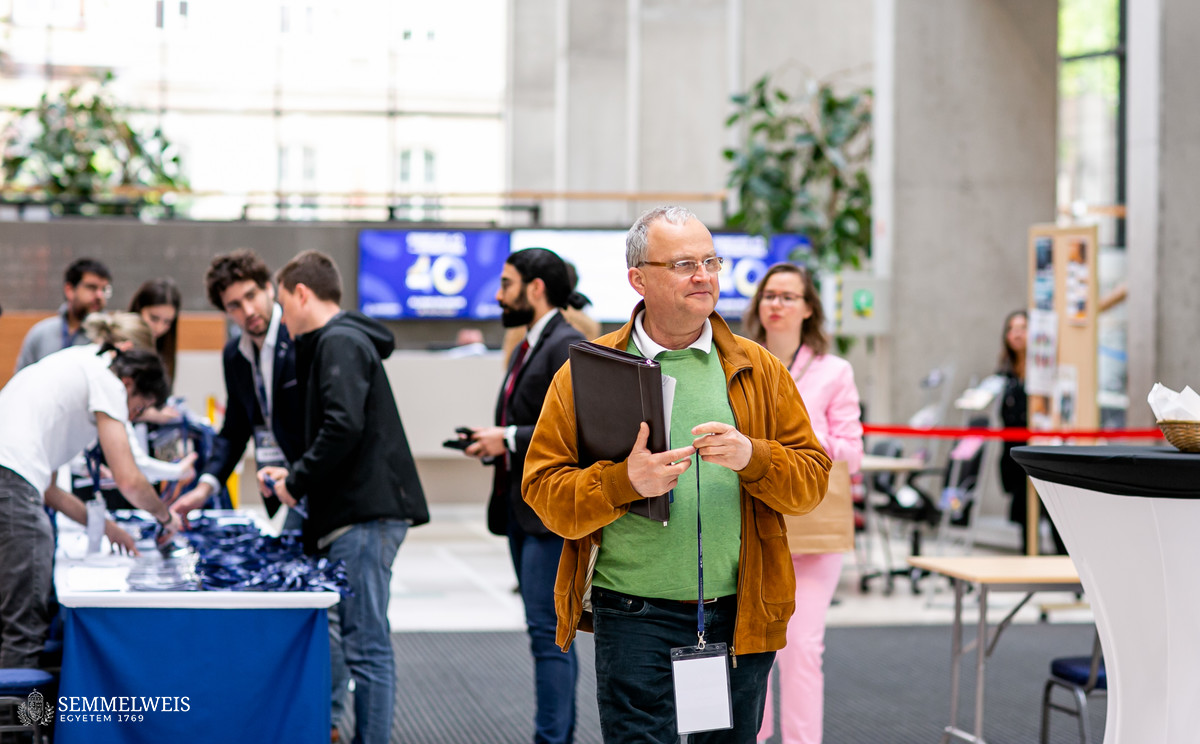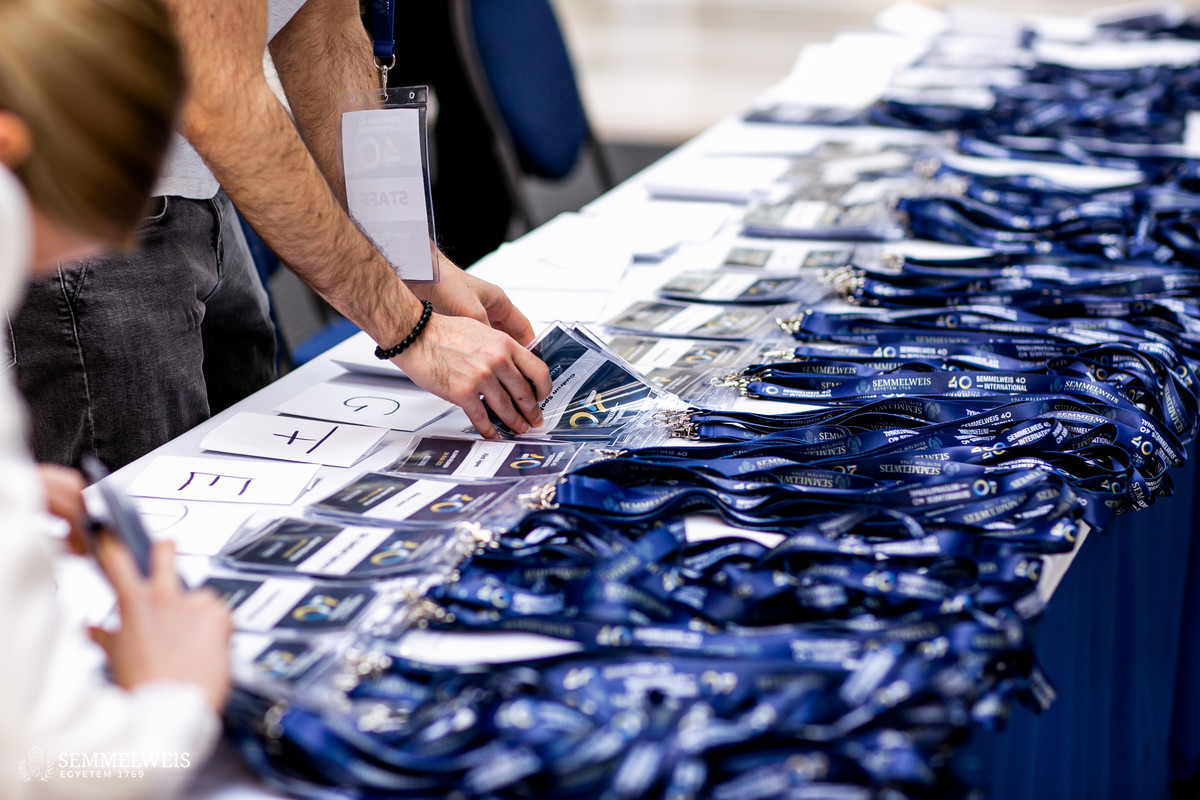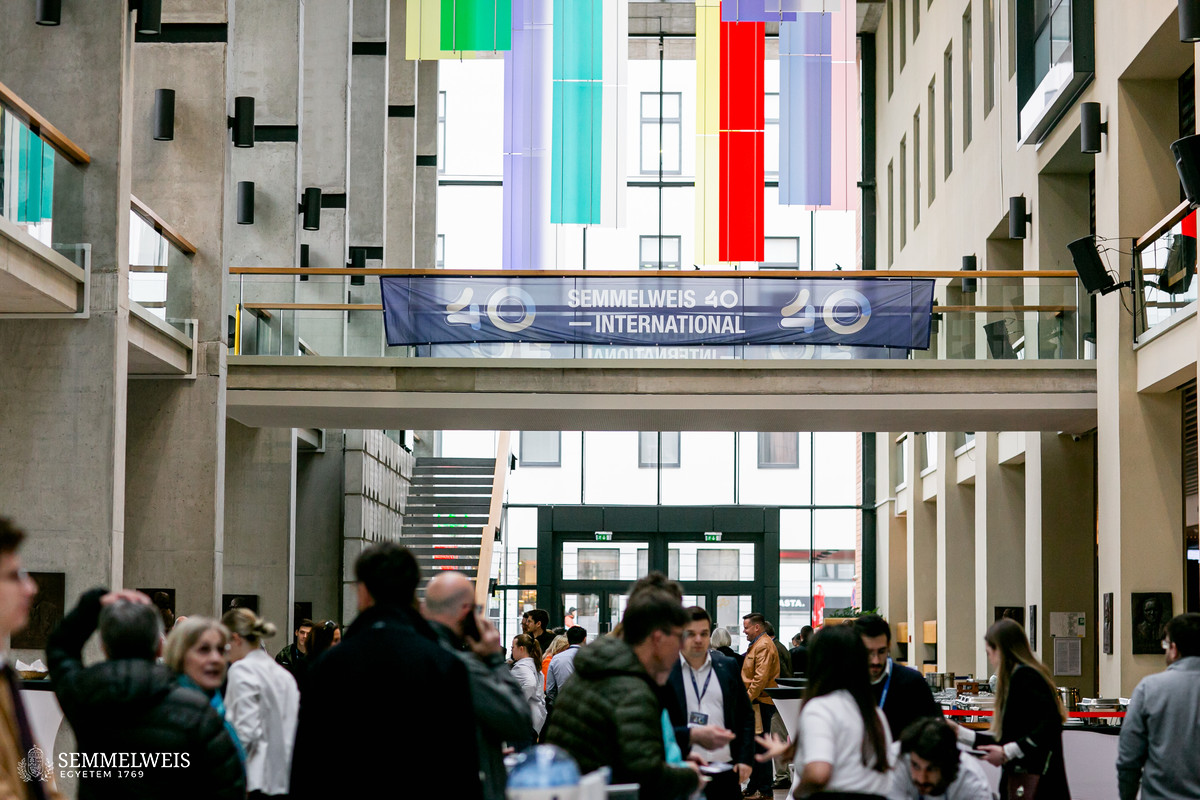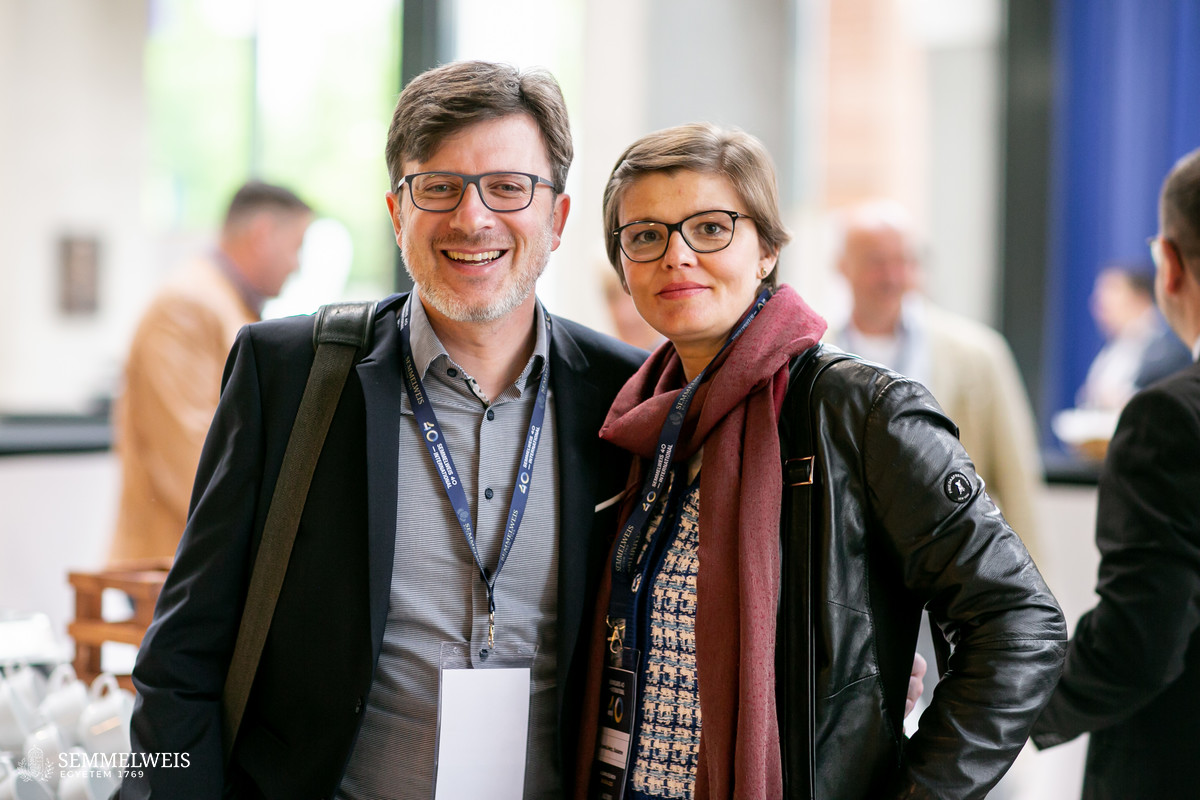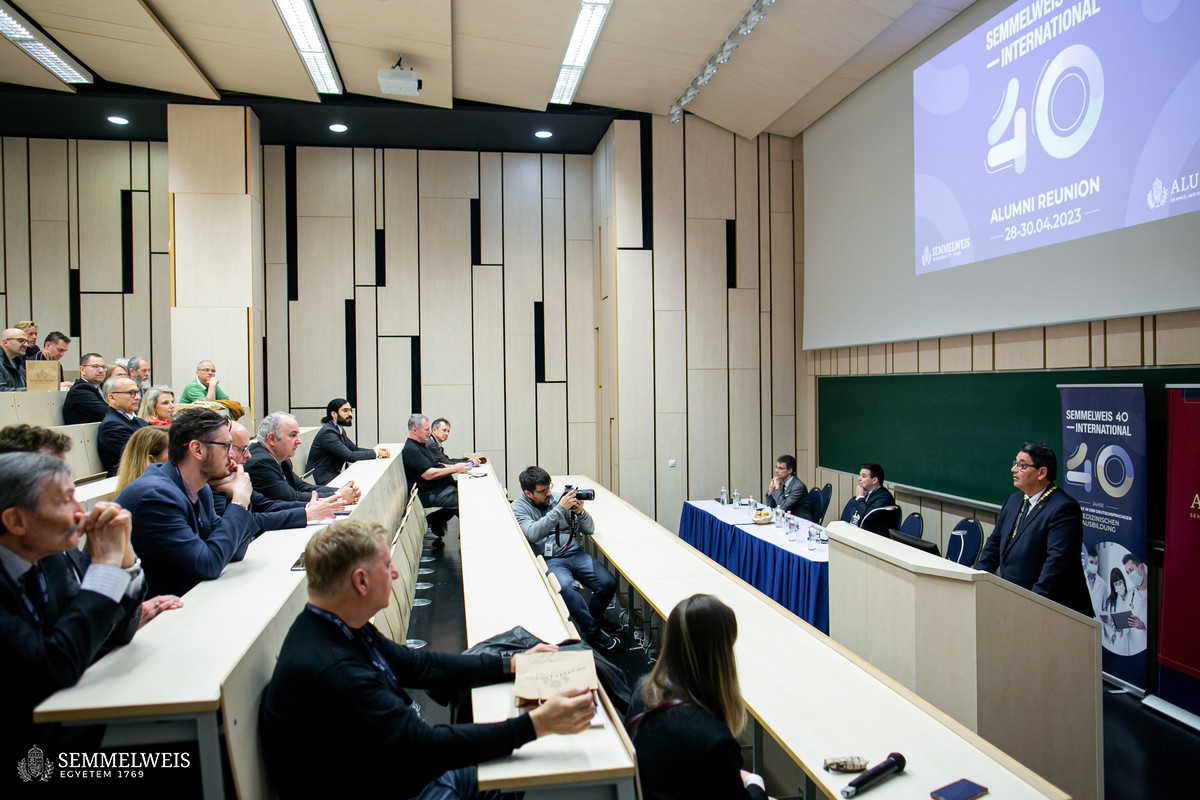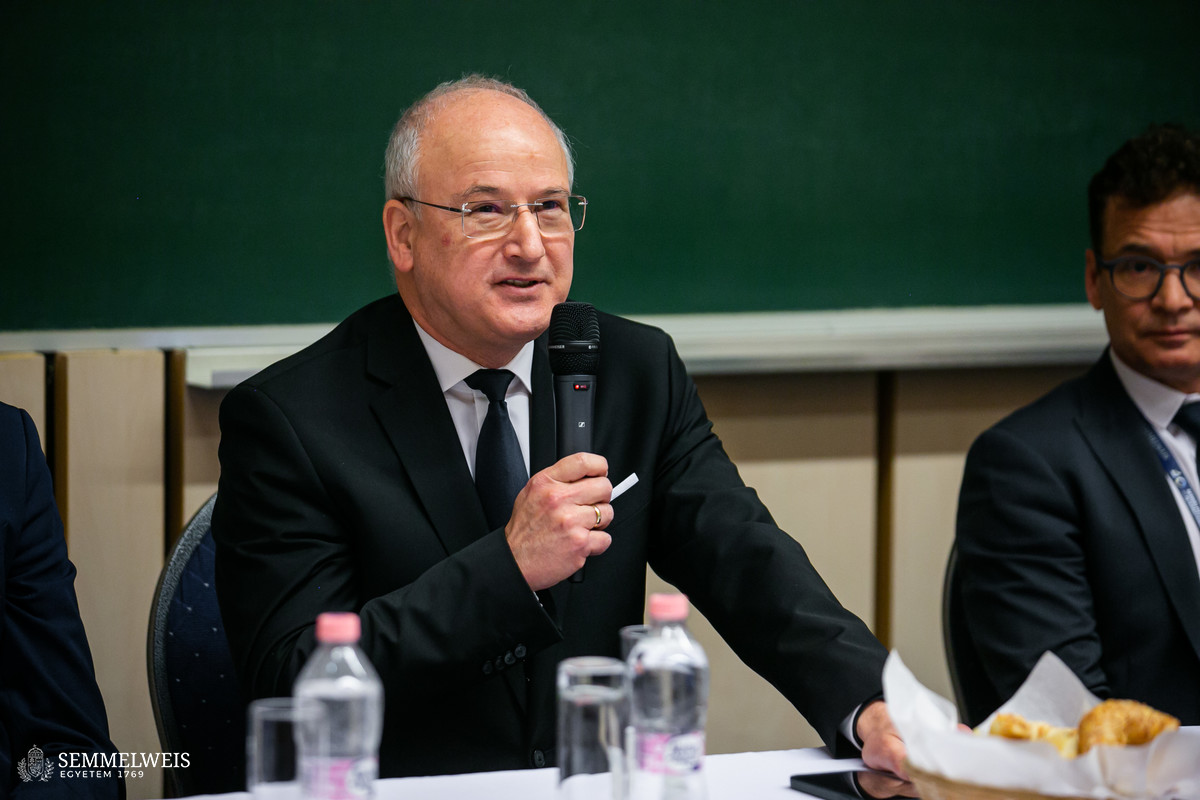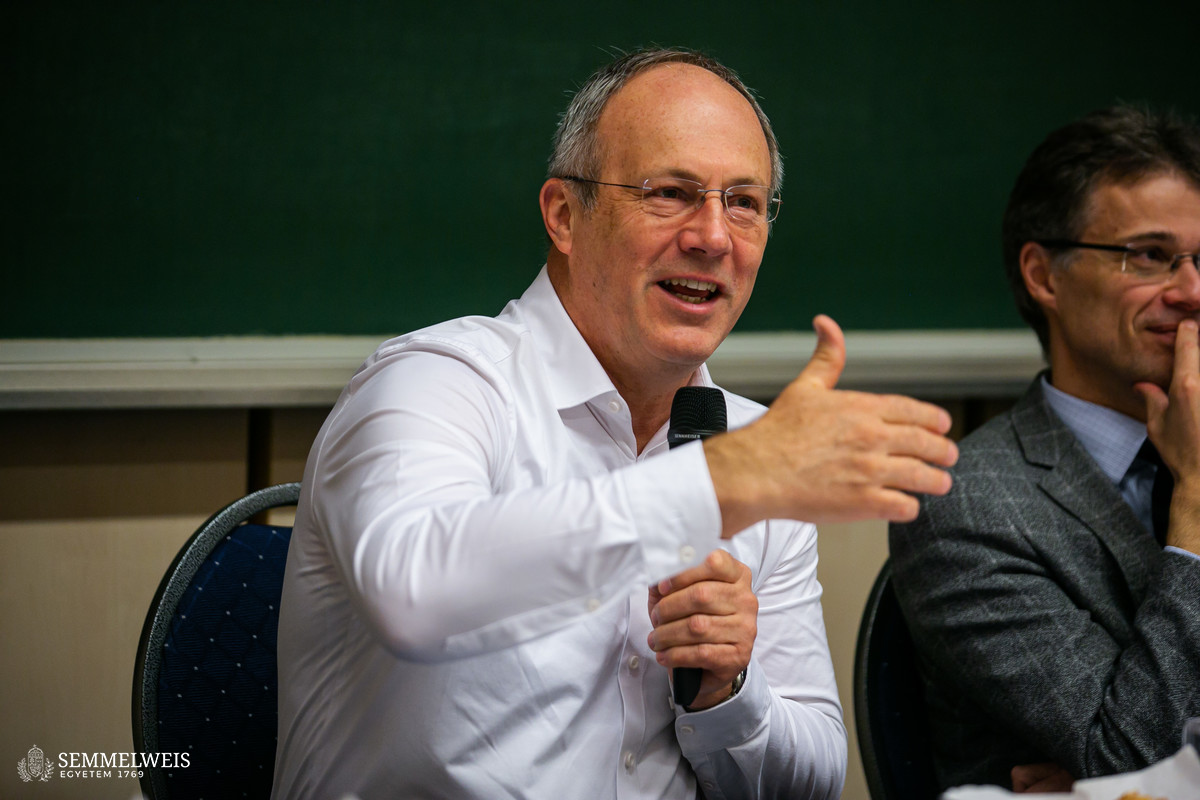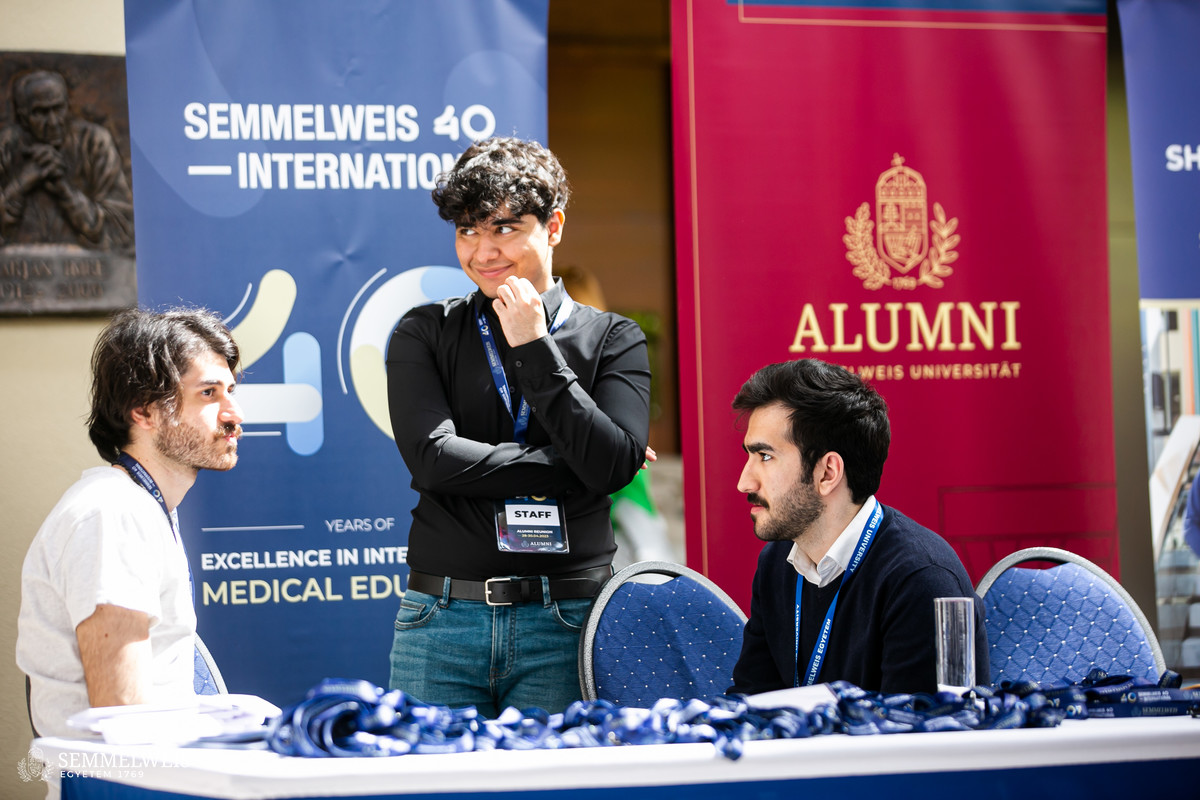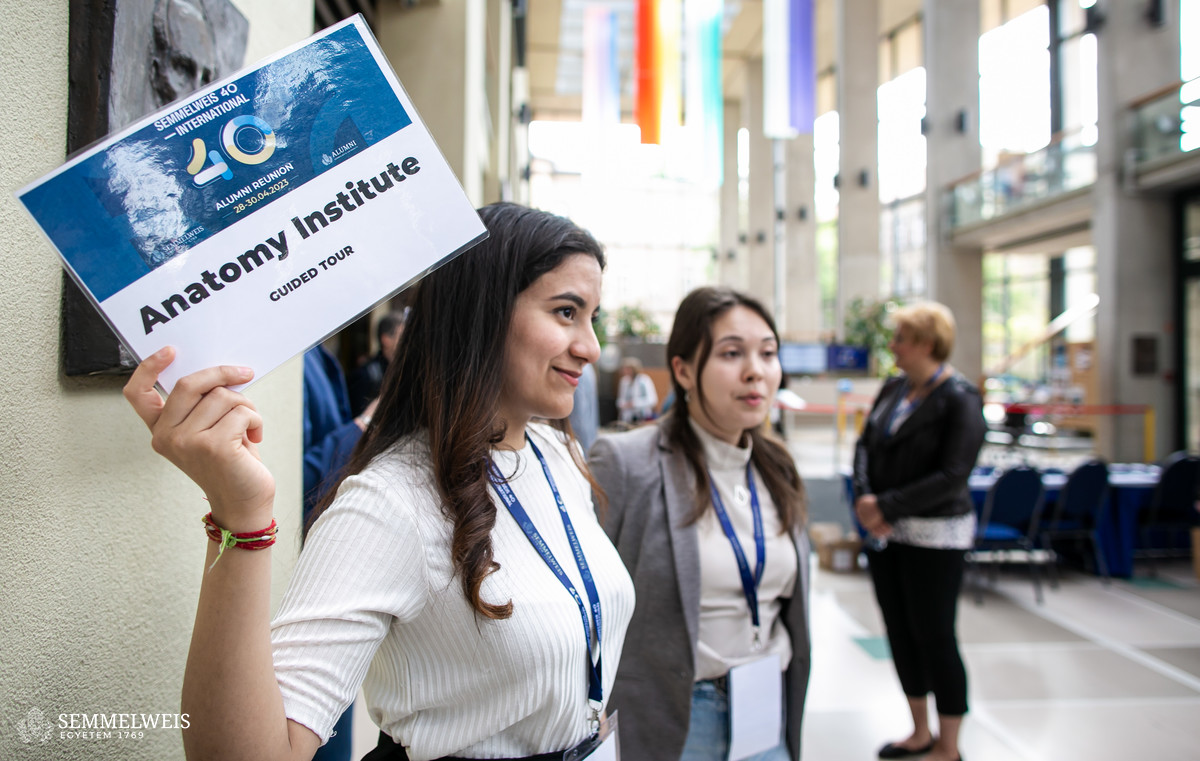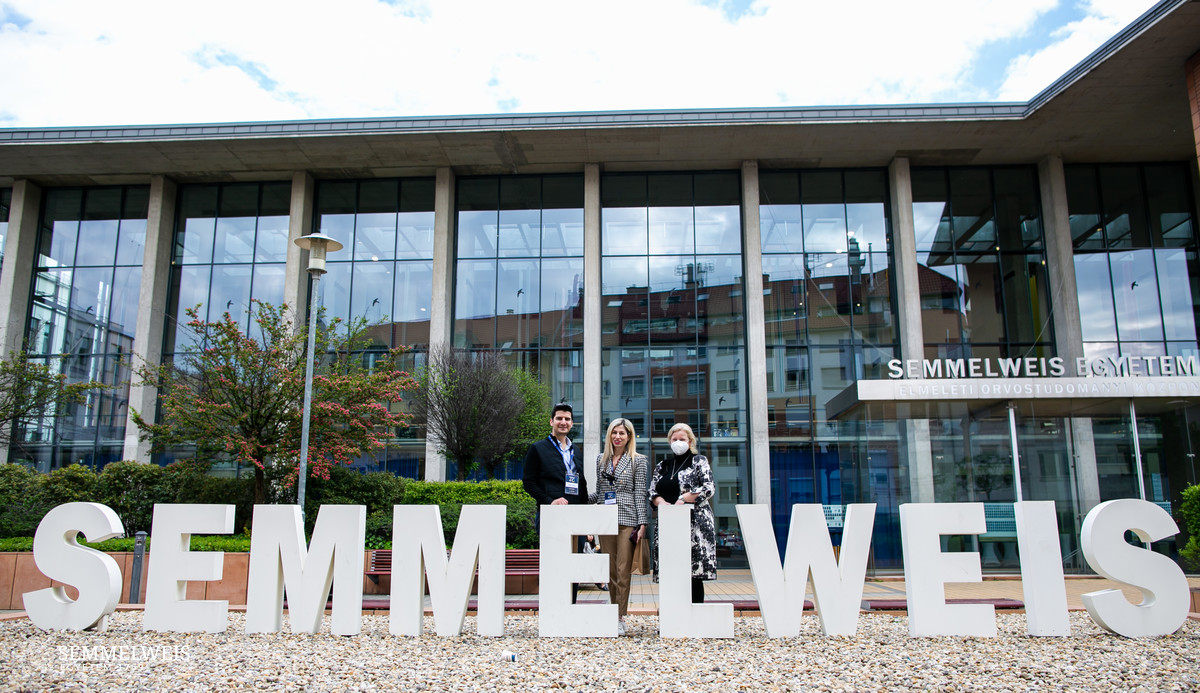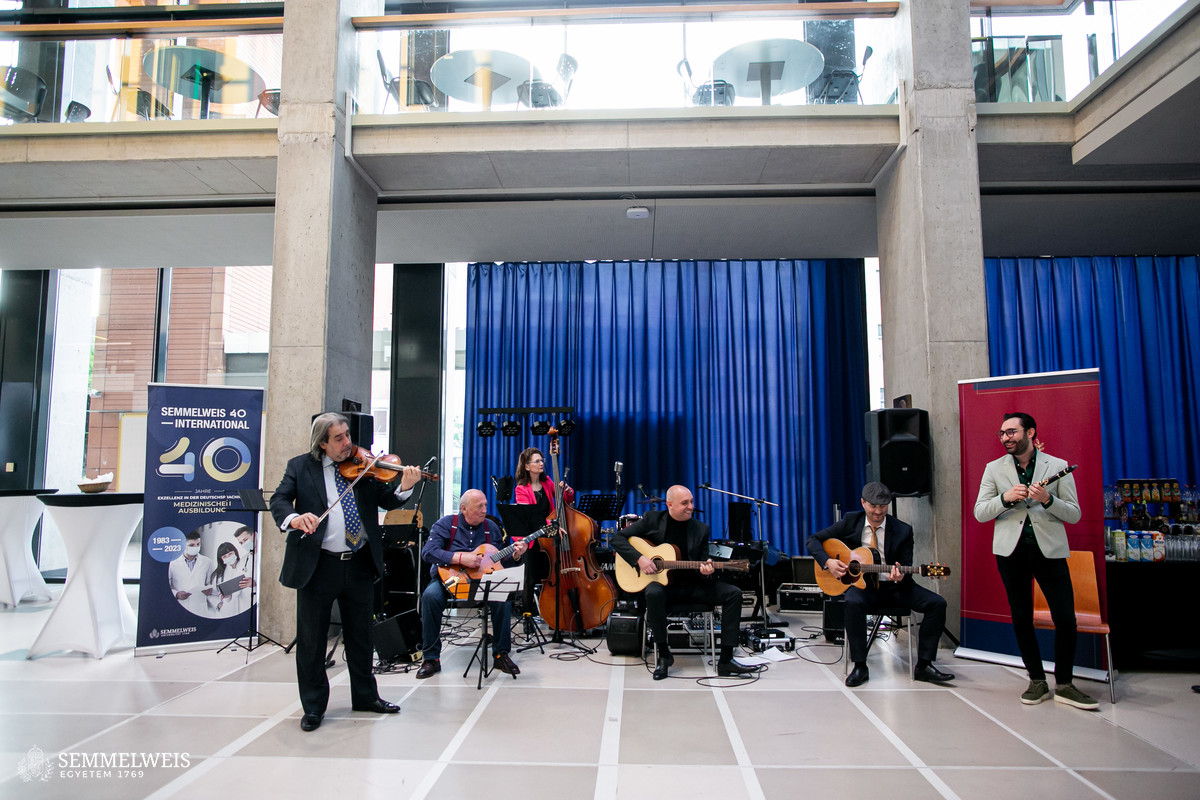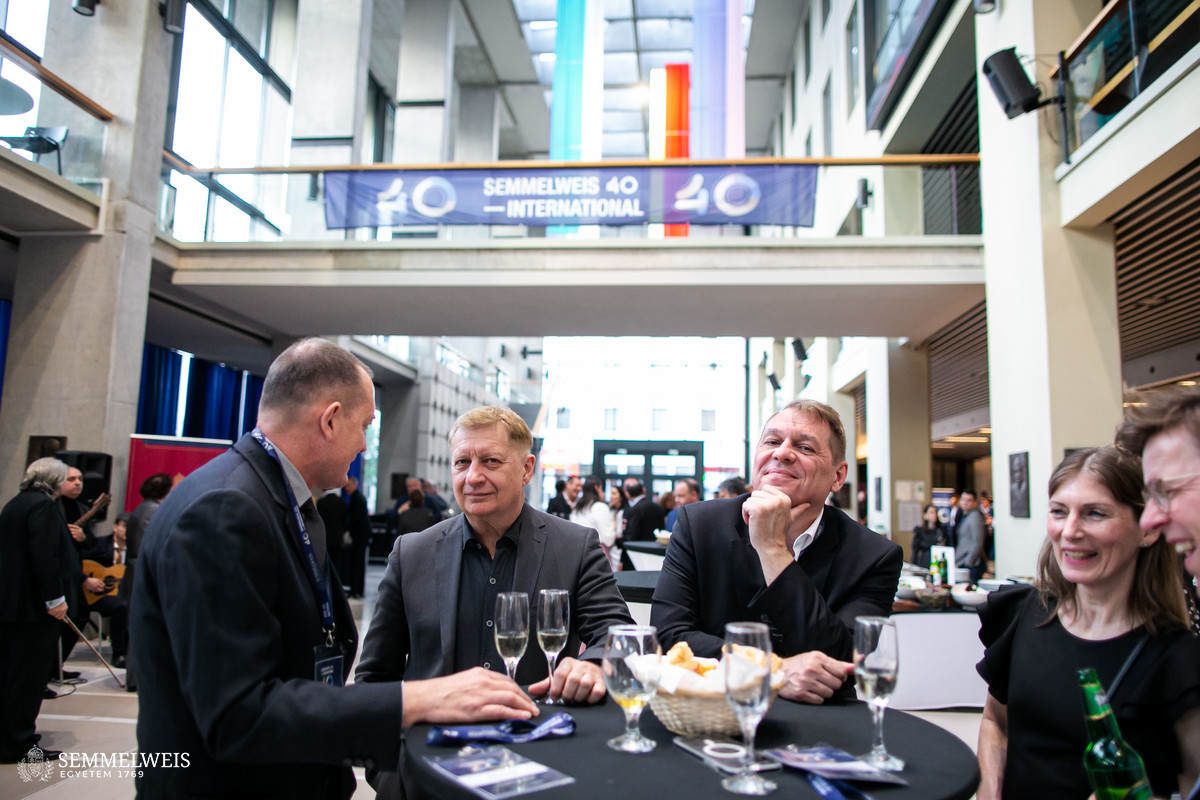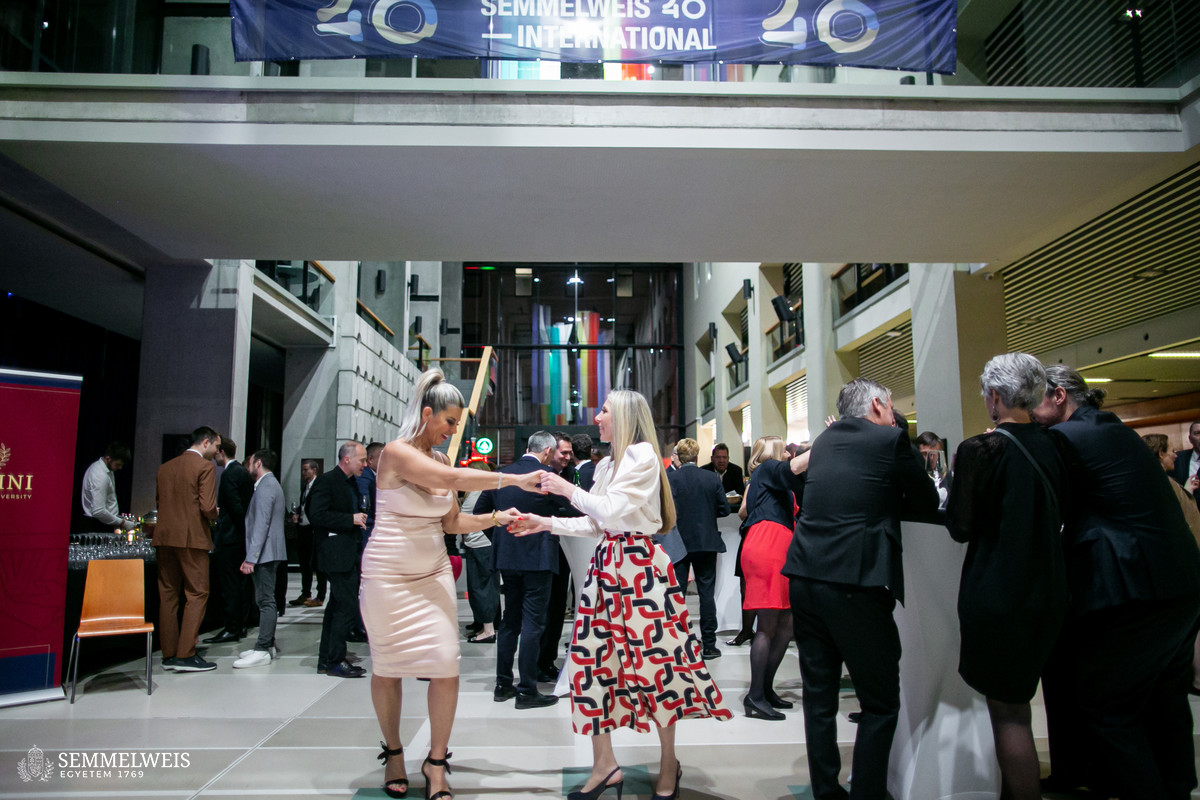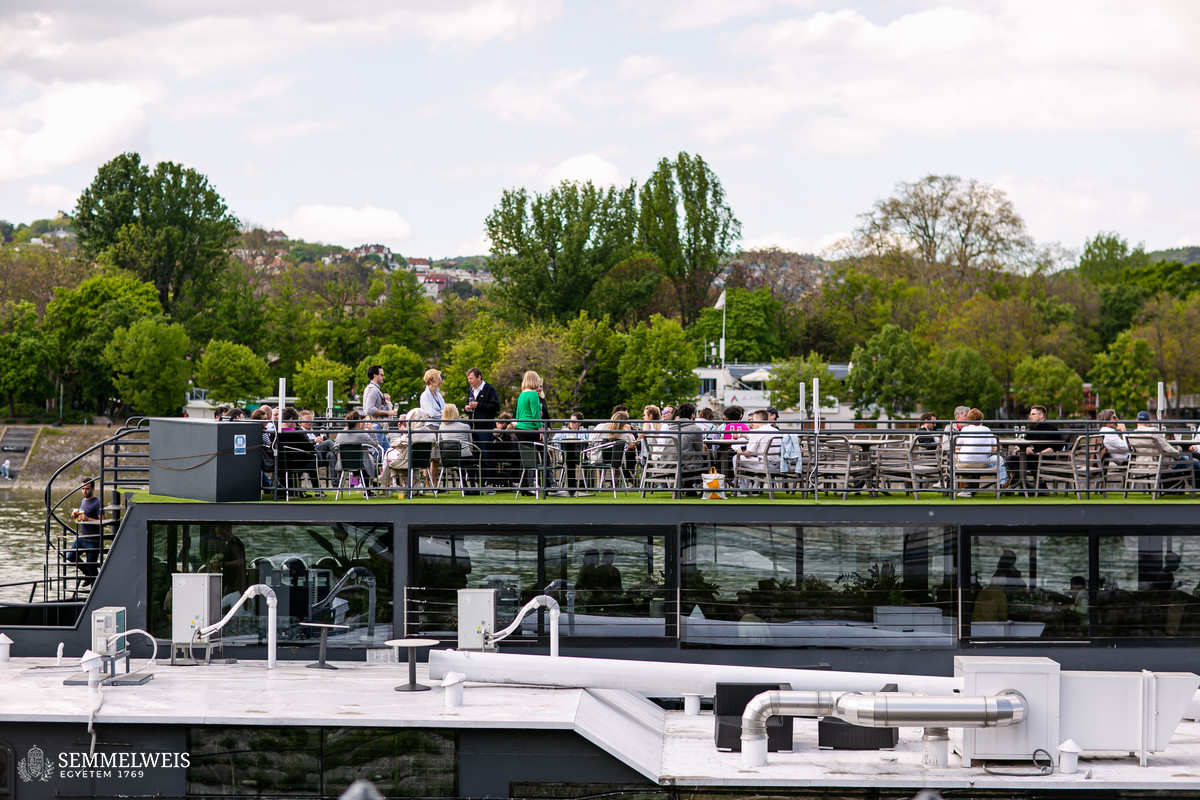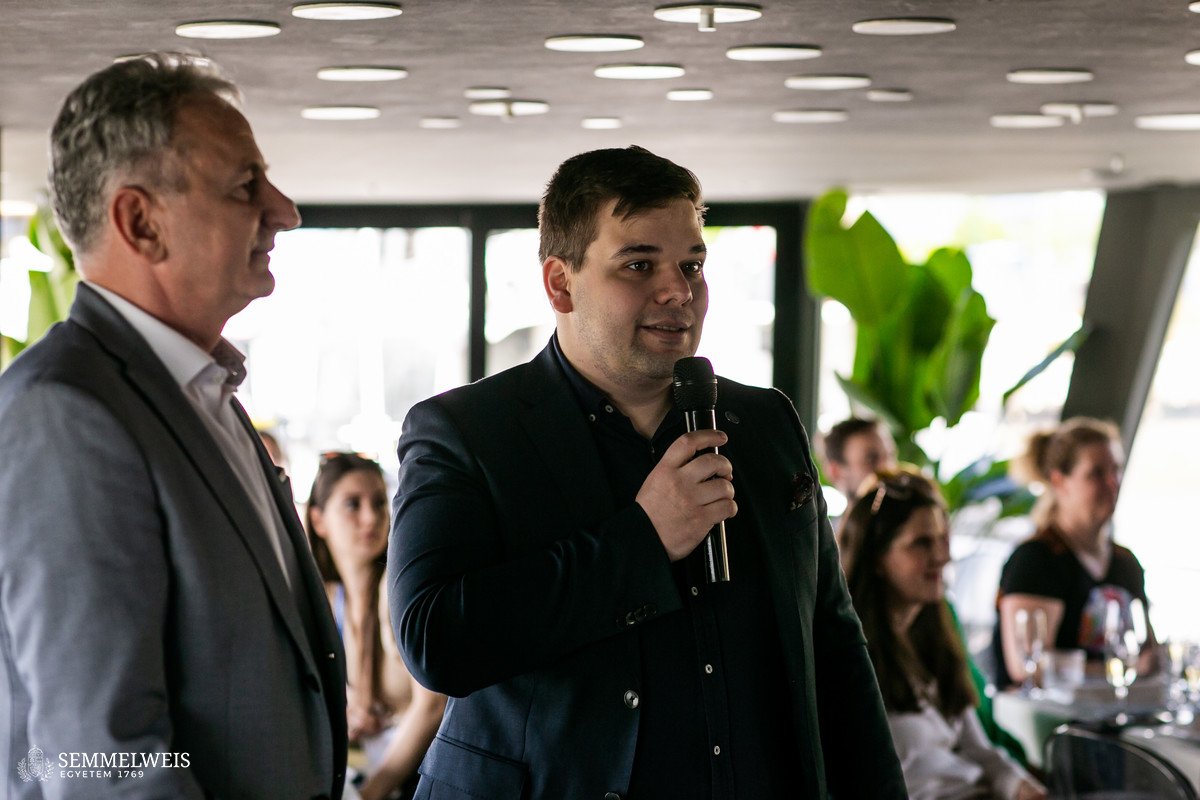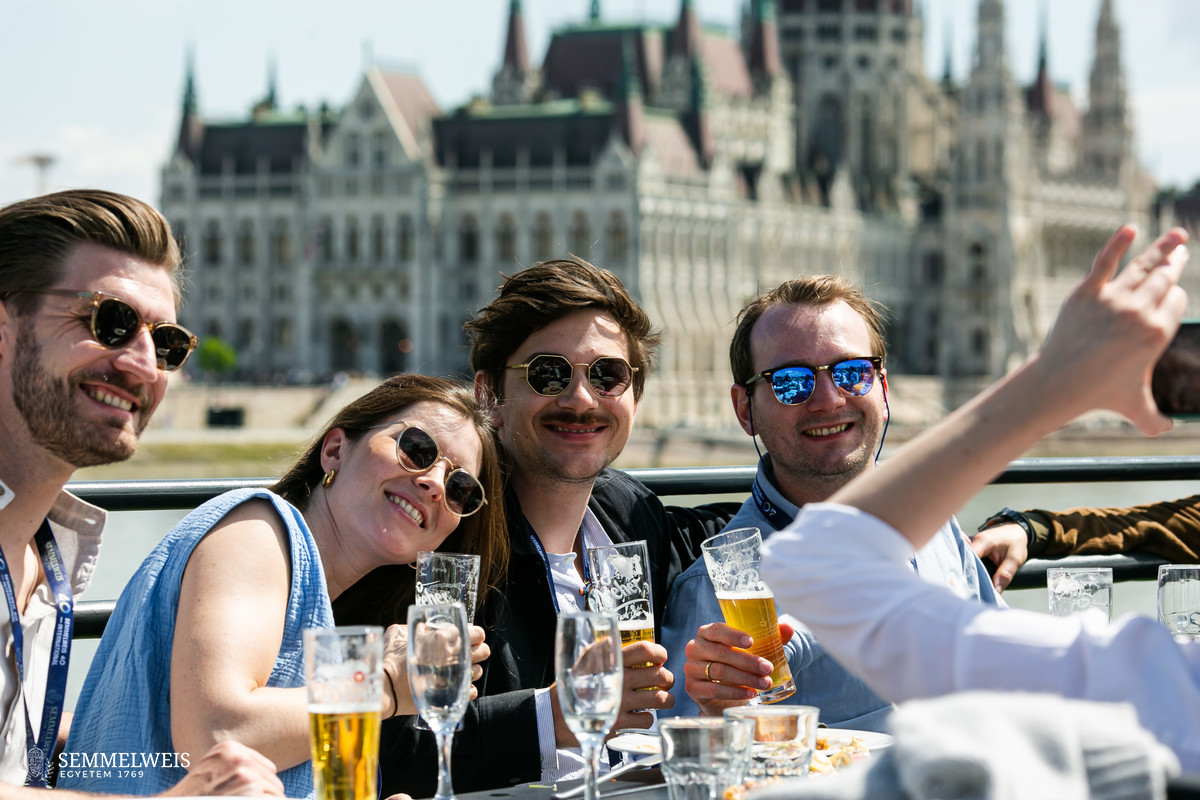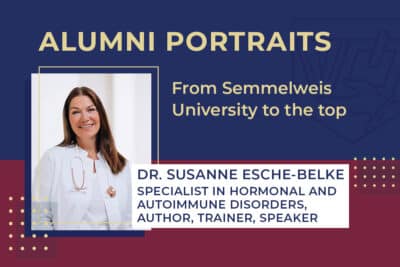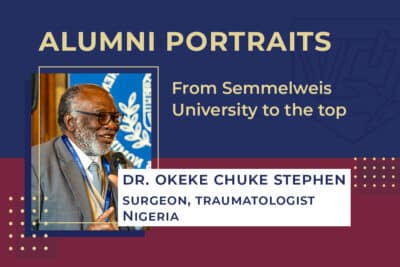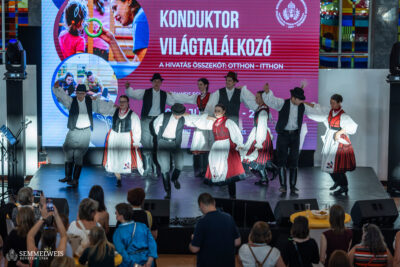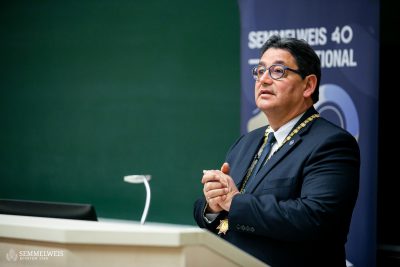 As an introduction, Rector Dr. Béla Merkely reminded that the university alumni have much to be proud of regarding their Alma Mater, since Semmelweis is not only the leading medical school in Hungary and the region, but is now a world world-class university in a growing number of fields.
As an introduction, Rector Dr. Béla Merkely reminded that the university alumni have much to be proud of regarding their Alma Mater, since Semmelweis is not only the leading medical school in Hungary and the region, but is now a world world-class university in a growing number of fields.
„This progress is not just down to the people who teach and study here at the moment, but also to the hard work of former students, for whom the question is not just what they gained from the university once, but what they can give back. This is the exceptional strength of the alumni community what the Alumni Board of Directors are bringing together, to strengthen the sense of belonging” stressed the rector.
The alumni meeting is an essential part of the university’s International 40 anniversary celebrations.
Not only are we commemorating the launch of international medical education four decades ago, but we are also celebrating our internationalism – the role we play in the world’s medical community
– said the rector, calling the alumni ’true ambassadors’ of this.
In his presentation, Rector Dr. Béla Merkely explained Semmelweis University’s aspiration to become one of the world’s top 100 universities in the future. He reminded the rich history of the oldest medical school in Hungary, highlighting the fact that the institution has always been responding to challenges of our times with devotion.
He went on to list the key numbers concerning the institution’s progress, namely the latest THE World University Rankings, where Semmelweis is now listed as the 236th. Dr. Béla Merkely emphasized that the university has a threefold mission, which is education, research & innovation and healthcare. „Based on our 250 years of tradition and on our commitment to protect and restore people’s health, we aim to place Semmelweis at the global forefront in fields of Medical & Health Sciences Higher Education, Research & Innovations,” he stressed.
He underlined the fact that the university has a strong international academic and scientific activity, and is a member of several organizations with an extensive international network including more than 100 universities within Erasmus+ and ties with another 100 universities in the form of bilateral agreements. The rector made a special reference to the new clinical research program with Harvard Medical School, expressing his hope that this will create an excellent networking opportunity for further collaboration.
Dr. Béla Merkely also gave a detailed account of the involvement in the COVID-19 pandemic, underlining the prominent role we played in drug therapy, the development of single-step diagnostics, the artificial lung treatment of infected new mothers, and the devoted work of volunteers.
As for long-term strategic goals, the rector said that as part of the curriculum reform started in 2019, the entire system of medical and health professional training will be renewed with an even more practice-oriented approach. „The research performance of Semmelweis University will be significantly increased in the field of translational research through patient-centered industry collaborations with domestic and international partners,” he added.
In his final words, the rector encouraged the alumni to become ambassadors of the university, and join its alumni network featuring 79 countries, with over 4,000 members at the English program. He also suggested to participate in the mentoring programs and exclusive events of Semmelweis, and stay informed on the latest developments.
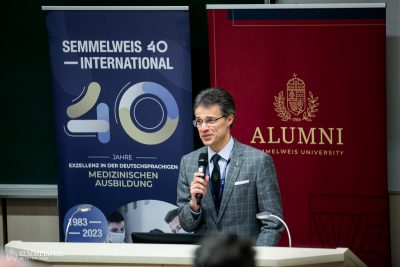 Dr. Alán Alpár, Vice-Rector for International Studies highlighted that Semmelweis University launched an ambitious program around 40 years ago, when it decided to include non-Hungarian students in the training. According to him, the institution is receiving applications from over 100 countries currently, with the German community being especially active on this field.
Dr. Alán Alpár, Vice-Rector for International Studies highlighted that Semmelweis University launched an ambitious program around 40 years ago, when it decided to include non-Hungarian students in the training. According to him, the institution is receiving applications from over 100 countries currently, with the German community being especially active on this field.
The Vice-Rector stressed that without the alumni’s support, the university would not have reached such prominent position in the field of higher education.
The goal is to support the friendship and also the scientific and educational side of this commitment. On one hand, we were able to give you a solid knowledge; on the other hand, what we would like to strengthen further on is to establish an international community, which means the Semmelweis alumni
– he concluded.
In his lecture, Dr. Alán Alpár gave account of the past 40 years of international training at Semmelweis University. According to him, there are three clues on how education evolved at the institution: tradition, reliability and development. He also listed the milestones of international training. The German medical program started in 1983 with 120 initial enrollment. In 1989, the English program was launched at three faculties – for doctors, dentists and pharmacists. Asklepios Campus Hamburg (ACH), the university’s first outsourced training program was launched in 2008, in which after the theoretical training in Budapest, medical students continued their studies on the Hamburg campus in Germany, based on the Hungarian curriculum. In 2014, guests from dozens of countries on four continents attended the 30th International Alumni Meeting, celebrating the 30th anniversary of foreign language education at Semmelweis. Last year, the English-language conductor training started at the András Pető Faculty. In the meanwhile, a Physiotherapy Bsc course has been initiated in Italian (Lugano) and also a Public Health Supervisor Msc in Slovakian (Bratislava).
The number of enrolled students in the international training has been rising steadily: in 2006, it was around 1,500 however in 2021, it well exceeded 3,000, according to the presentation. Semmelweis offers a number of opportunities for students to get involved in university life: Dr. Alán Alpár mentioned the International Semmelweis Student Association (ISSA) as a main source of activities, not to mention the International Students’ Conference (TDK) with over 100 submitted presentations lately.
The opening ceremony ended with a welcome speech by Dr. Tamás Hegedüs, Director of the Alumni Board.
The three-day event was designed to provide an opportunity to network, share knowledge and build lasting bonds between members of Semmelweis University’s international alumni community, attended by about 300 international alumni and their families from five continents. The meeting also offered an opportunity to support the Semmelweis University Foundation.
On Saturday, the program continued at the Centre for Theoretical Medicine, where visitors could listen to presentations on professional experiences and future plans of the faculties in international education. During the round-table discussions, participants talked about their careers, many of them thanking Semmelweis University and its community for all the knowledge and values they have received. The evening gala dinner was accompanied by the band “Another Round!”.
On Sunday, the participants had the opportunity to visit the Sziklakórház Atomic Bunker Museum and the Buda Castle District. The afternoon program was a Danube cruise with a cosy lunch.
The alumni community of Semmelweis are important ambassadors of the institution throughout their careers, and are proud to be part of the alma mater. They are always welcome, as it is like coming home to us. Please continue to stay in touch with Semmelweis University and support its strategic goals to the best of your ability
– Dr. Tamás Hegedüs, Director, emphasized in his speech. The event ended with a speech by Dr. Marcel Pop, Director of International Relations, thanking the participating alumni members for their participation.
Viktória Kiss; Alumni Board
Photo: Attila Kovács – Semmelweis University

